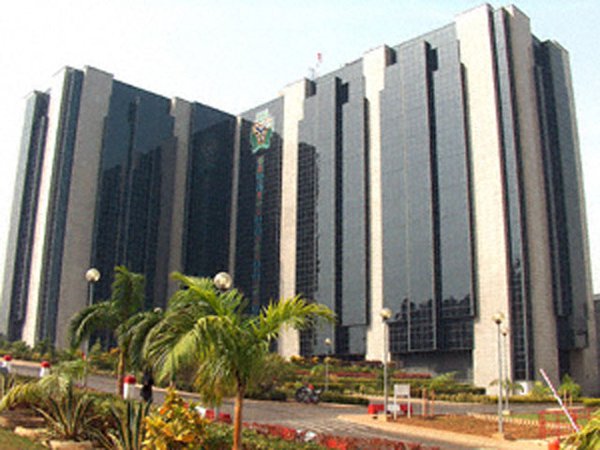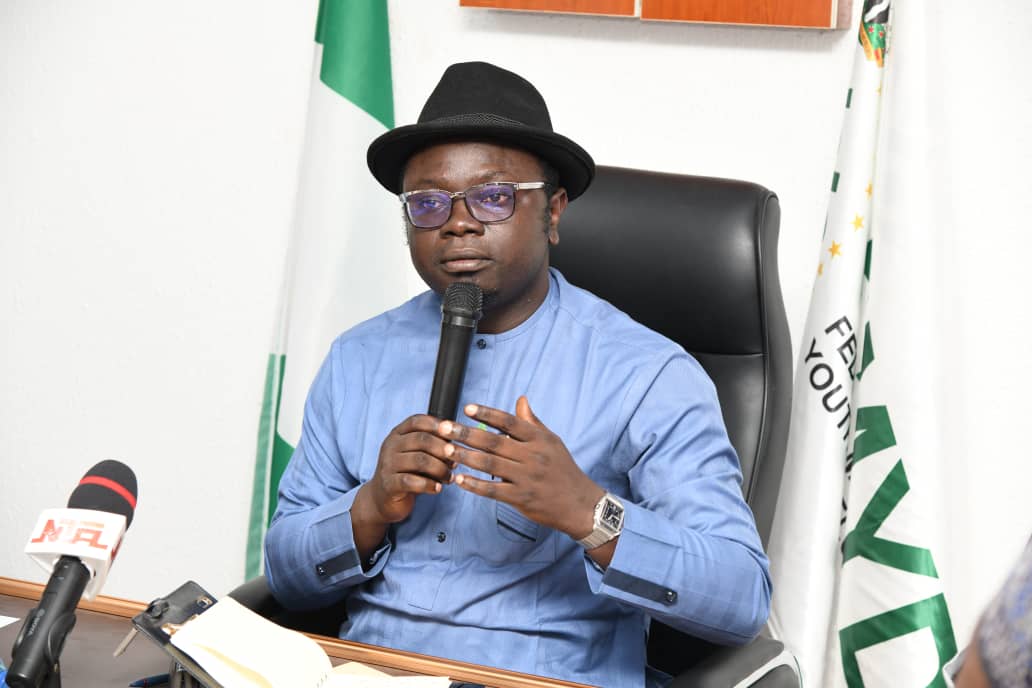Featured
FG’s Domestic Debt Rose To N13.4trn H1 2019 ― CBN

FG’s Domestic Debt Rose To N13.4trn H1 2019 ― CBN
…as apex bank makes N21.211bn profit on SLF, rediscounting, repo
Total domestic debt of the Federal Government of Nigeria (FGN) rose to N13.4 trillion by the end of June 2019.
The Central Bank of Nigeria (CBN) Financial Markets Half Year Report noted that the figure was ₦1,261.36 billion or 10.38 per cent higher than the ₦12,151 billion domestic debts position during the corresponding period of 2018.
The debt stock during the review period comprised FGN Bonds worth ₦9.691 trillion or 72.26 per cent, Nigerian Treasury Bills (NTBs) worth ₦2.651 trillion or 19.77 per cent and FRN Treasury Bonds of ₦125.99 billion or 0.94 per cent.
Others included FGN Promissory Notes of ₦707.76 billion or 5.28 per cent, FGN Sukuk worth ₦200.00 billion or 1.49 per cent, FGN Green Bonds worth ₦25.69 billion or 0.19 per cent and FGN Savings Bonds of ₦10.43 billion or 0.08 per cent.
In spite higher debt stock, however, the cost of debt servicing declined by 15.00 per cent to ₦800.73 billion at end-June 2019, compared to ₦941.99 billion in the corresponding period of 2018 due to declining yields in the fixed income market during the review period.
CBN also reported the average daily volume of standing lending facility (SLF) to banks to be ₦95.63 billion in 121 transaction days, of which Intraday Liquidity Facility (ILF) conversion constituted ₦35.50 billion or 37.12 per cent of the total request.
“As a result, the average daily interest income amounted to N66.87 million, totalling N5,372,400,000 during the period under review.”
This contrasted an average daily SLF volume of ₦57.36 billion in 123 transaction days of the first half of 2018 of which ILF conversion constituted ₦45.54 billion or 79.39 per cent of the total request.
Consequently, the average daily interest income was ₦44.40 million.
It explained that the higher patronage at the window in 2019 reflected the impact of the prevailing liquidity conditions in the banking system.
Patronage at the Standing Deposit Facility (SDF) window reflected an average daily amount of ₦67.64 billion for the 121 business days in the first half of 2019, representing a decrease from ₦88.30 billion for the 121 transaction days out of 123 business days in the corresponding period of 2018.
Similarly, the average daily interest payments on the deposits decreased to ₦22.48 million in the review period, from ₦30.43 million in the corresponding period of 2018.
The decreased volume of transactions reflected in the review period was due to the tight liquidity conditions in the banking system.
Patronage at the SDF window was low in 2019 with a daily average of ₦67.64 billion, compared to ₦88.30 billion in the corresponding period of 2018. The reduction in transactions was due to the tight liquidity conditions in the banking system.
According to the report, CBN also re discounted Bills worth ₦54.44 billion with 170 to 352 days to maturity at 13.50 per cent, and in the process, earning an interest totalling ₦6.59 billion.
I addition, total value of repurchase (repo) transactions in the first half of 2019 amounted to ₦611.30 billion, with interest rates ranging from 18.50 to 19.50 per cent from January to March 25, 2019, and 18.00 to 19.00 per cent from March 26 to June 2019, following the downward review of MPR.
“The tenors were for 4- to 90-days and the total interest earned amounted to ₦19.25 billion.”
Tribune
Featured
FG to Harness the Digital Economy to Empower Youth

Joel Ajayi
The Honourable Minister of State for Youth Development, Mr Ayodele Olawande has disclosed that the Federal Government is making efforts to harness the potentials of the digital economy in empowering the youth and creating sustainable jobs.
He made this disclosure in Abuja when he received the participants of the Senior Executive Course 46, 2024 of the National Institute of Policy and Strategic Studies, (NIPSS), Kuru, Jos, Plateau State who were on study tour to the Ministry.
Mr Olawande said over 50% of the population below the age of 30 have a significant demographic advantage in the digital age.
“Our youths are tech-savvy, innovative and eager to contribute to the country’s economic growth. However, they face numerous challenges including limited access to quality education, skills training and job opportunities.
The digital economy offers a unique opportunity for Nigeria to leapfrog traditional development challenges. With the rise of e-commerce, digital payments and remote work”. “Our youths can assess global markets, skills training and job opportunities like never before,” he added.
According to the Minister, challenges hindering the growth of the digital economy in Nigeria must be addressed.
He explained that to overcome the challenges, the Ministry has implemented initiatives such as digital skills training programs for youths, focusing on areas like software development, data analytics and digital marketing especially in the NYSC.
This, he disclosed is alongside partnering with Galaxy Back Bone to improve infrastructure, Internet connectivity and alternative electricity supply as well as funding opportunities such as grants, loans and venture capital for startups of small businesses with launching of the National Youth Investment Fund.
The Honourable Minister who hinted that the Ministry’ s goal is to create an ecosystem that supports entrepreneurship and employment opportunities for youth stated: ” We recognise that sustainable job creation is critical to Nigeria ‘s economic growth and stability”
”I urge you all to join us in this journey to harness the potential of the digital economy for youth empowerment and sustainable job creation in Nigeria.”, he added.
Mr Olawande further said that the opportunities and challenges underscore the need for a collaborative effort from all stakeholders to harness the potential of the digital economy for sustainable development.
The Minister who observed that there is a gap between the Government and the young people expressed his heartfelt desire for the Youths of the nation to feel the Government. He opined that the country has the most intelligent youths in the world.
Earlier, the leader of the delegation from NIPSS, Barrister Nima Salman Mann, mni said they are in the Ministry to research, proffer solutions, recommendations and strategies to help Government chart its course for the the year, with the theme : ‘Digital Economy, Youth Empowerment and Sustainable Job Creation in Nigeria: Issues, Challenges and Opportunities’.
.She also added that Ministry of Youth Development is very germane to this year’s theme .” We are with the Ministry of Youth to listen to what you are doing to help the youth, how you are doing it, strategic plans and way forward as well as how we can use the digital economy to chart the goal for sustainable job creation,” she concluded.
-

 Featured5 years ago
Featured5 years agoLampard Names New Chelsea Manager
-

 Featured4 years ago
Featured4 years agoFG To Extends Lockdown In FCT, Lagos Ogun states For 7days
-

 Featured5 years ago
Featured5 years agoNYSC Dismisses Report Of DG’s Plan To Islamize Benue Orientation Camp
-

 Featured4 years ago
Featured4 years agoChildren Custody: Court Adjourns Mike Ezuruonye, Wife’s Case To April 7
-

 Featured3 years ago
Featured3 years agoTransfer Saga: How Mikel Obi Refused to compensate me After I Linked Him Worth $4m Deal In Kuwait SC – Okafor
-
Sports1 year ago
TINUBU LAMBAST DELE MOMODU
-

 News8 months ago
News8 months agoJubilation In Kaduna As Tribunal Upholds Ekene Adam Winner Of Reps Election
-
Featured5 years ago
Board urges FG to establish one-stop rehabilitation centres in 6 geopolitical zones
